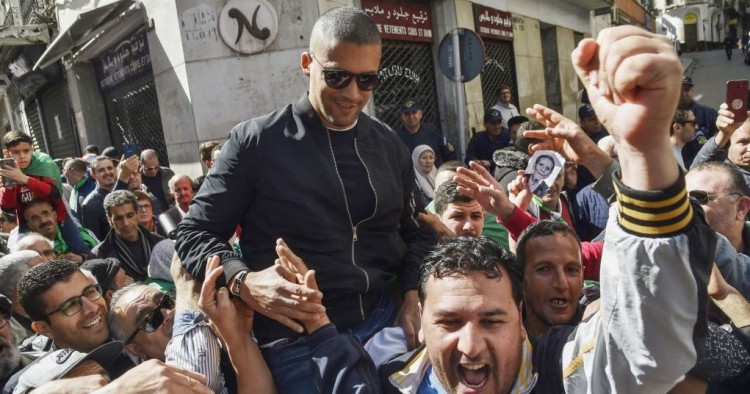Changes to the Algerian penal code that would facilitate government repression of political and press freedom have provoked worries among Algerian activists and international press-freedom watchdogs. President Abdelmadjid Tebboune on April 19 reiterated his commitment to establishing a “Second Algerian Republic” based on “true democracy.” His communications minister last week asserted the government respects press freedom and freedom of expression. However, last Thursday Parliament’s lower house hurriedly passed amendments to the penal code that criminalize any action that harms “national unity and public order” and the justice minister warned that any publication or website that does so would be liable for prosecution.
Last autumn the government started harassing and detaining activists involved in the street protest movement; one prominent activist arrested last September still awaits trial. The government sentenced TV network France 24’s Algerian correspondent to eight months in prison for allegedly trying to evade customs duties on imported equipment. Another prominent journalist, French TV5 network’s Algeria correspondent, who is known for his coverage of the street marches, has been in detention since March awaiting trial on charges of inciting an unarmed gathering against the government and “endangering national unity.” The government also has blocked access in Algeria to four foreign-based Algerian news websites, one just days after a blistering critique of Tebboune by a highly respected Algerian journalist. The justice minister last week threatened to bring court cases against foreign-based sites that promote national division. It is easier for the government to take such actions in the absence of the street protests, which are suspended because of the pandemic. Paris-based Reporters Without Borders on April 21 warned that “access to information is under great threat in Algeria,” and it lowered Algeria’s relative ranking among countries to 146 out of 180 countries. Tunisia, by contrast, stood at number 72.
Robert Ford is a Senior Fellow at MEI. The views expressed in this piece are his own.
Photo by RYAD KRAMDI/AFP via Getty Images
The Middle East Institute (MEI) is an independent, non-partisan, non-for-profit, educational organization. It does not engage in advocacy and its scholars’ opinions are their own. MEI welcomes financial donations, but retains sole editorial control over its work and its publications reflect only the authors’ views. For a listing of MEI donors, please click here.













